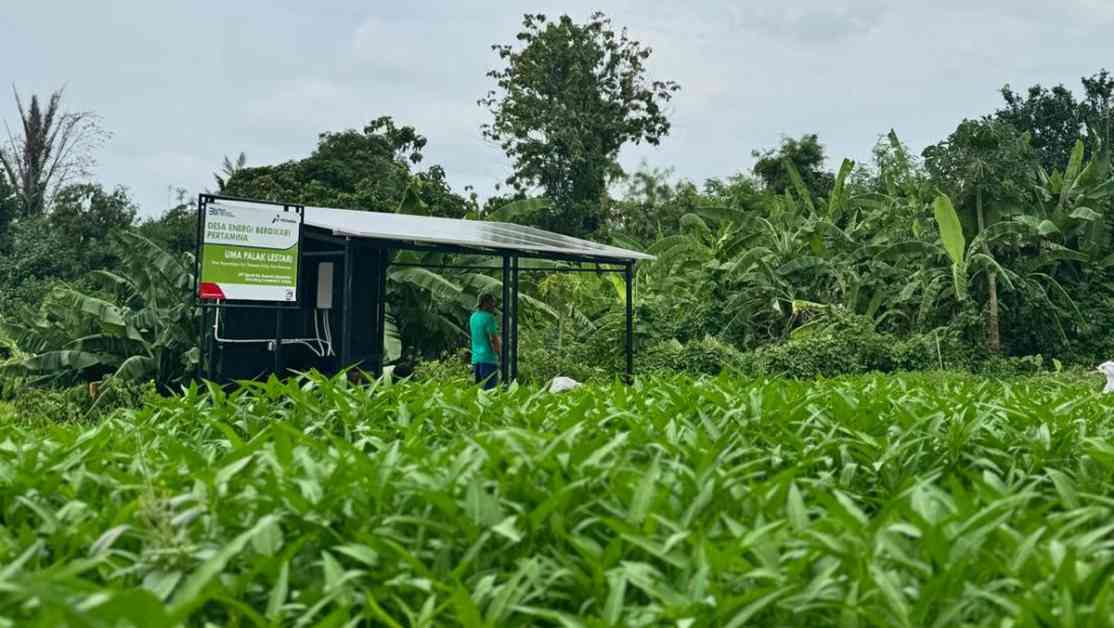Pertamina’s Initiative: Transforming Communities Through Independent Energy Villages
Jakarta, February 3, 2025 – PT Pertamina (Persero), a state-owned enterprise, is actively engaged in promoting energy and food self-sufficiency through the Village Self-Reliant Energy Program (DEB). By 2024, Pertamina had established 159 DEBs across Indonesia, benefiting 35,746 households. These initiatives have generated 733,559 watts peak (Wp) of clean energy annually, along with 846,180 metric tons of biogas and methane.
Vice President of Corporate Communication at Pertamina, Fadjar Djoko Santoso, emphasized that the DEB program maximizes the abundant clean energy sources in rural areas, aligning with the government’s goal to reduce emissions and achieve net zero emissions (NZE) by 2060. Santoso highlighted Indonesia’s vast potential for renewable energy, emphasizing that the DEB program serves as a platform to introduce sustainable clean energy to rural communities.
Utilizing renewable energy sources such as solar power, wind, micro hydro, and biogas, the DEB program has successfully reduced carbon emissions by 729,000 tons of CO2 equivalent per year. Furthermore, the program has bolstered food security in rural areas by increasing rice production to 15,762 tons annually, consequently enhancing the local economy with an annual value of Rp 3.6 billion.
Santoso pointed out that the DEB program is implemented by all Pertamina Subholding and Subsidiaries, with locations spanning from Aceh to Papua. One notable DEB program collaboration between Pertamina and PT Pertamina Geothermal Energy Tbk through PGE Area Kamojang is situated in Kampung Legok Pulus, Sukakarya Village, Garut Regency.
In this village, a solar panel installation with a capacity of 8.72 kWp and a 10 kWh battery has been set up, enabling residents to save up to Rp18 million on energy costs annually while reducing carbon emissions by 11.4 tons of CO2 per year. The benefits of this program are experienced firsthand by the local community, particularly the members of the Mekarsari Women Farmers Group (KWT), who utilize the facilities to operate water pumps for irrigating their vegetable gardens.
Moreover, the solar power system contributes to the operation of clean water ultrafiltration devices, significantly supporting the community’s drinking water and irrigation needs. The DEB program in this village is envisioned as a model for empowering communities through renewable energy, with the potential for replication in other regions of Indonesia.
As a leading company in the energy transition sector, Pertamina is committed to supporting the Net Zero Emission 2060 target by continuing to drive programs that directly impact the achievement of Sustainable Development Goals (SDGs). These efforts are in line with the implementation of Environmental, Social & Governance (ESG) principles across all Pertamina business lines and operations.
Empowering Communities Through Sustainable Energy
The DEB program initiated by Pertamina is not merely a project for energy production but a transformative endeavor that uplifts rural communities by providing them with clean and sustainable energy solutions. By harnessing the power of renewable sources like solar, wind, and biogas, these villages are not only reducing their carbon footprint but also enhancing their economic prospects and food security.
Expert Insight: Dr. Sarah Green, an environmental scientist, emphasizes the importance of such initiatives in combating climate change. “Projects like Pertamina’s DEB program are crucial in transitioning to a sustainable future. By empowering communities with renewable energy solutions, we can significantly reduce greenhouse gas emissions and pave the way for a cleaner, greener planet.”
A Glimpse into the Future of Energy Transition
As Pertamina’s DEB program continues to expand and evolve, it serves as a beacon of hope for a future where clean energy is accessible to all. By setting up independent energy villages that prioritize sustainability and community empowerment, Pertamina is not only contributing to environmental preservation but also fostering economic growth and resilience at the grassroots level.
In conclusion, Pertamina’s commitment to sustainable energy solutions through the DEB program exemplifies a proactive approach towards addressing the global climate crisis. By investing in renewable energy sources and empowering local communities, Pertamina is leading the way towards a more sustainable and environmentally conscious future.






















